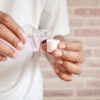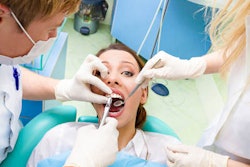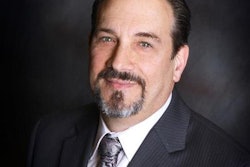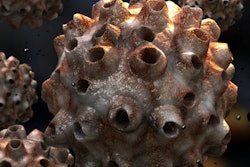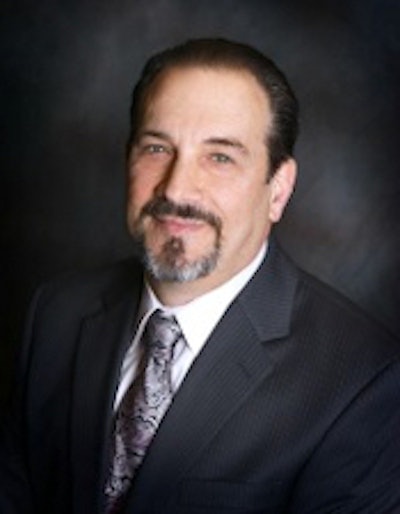
If I were the comedian Louis C.K., I might begin this article like so, "Dentists are health professionals that specialize in the diagnosis, prevention, and treatment of diseases and conditions of the oral cavity -- but maybe, just maybe, they need to doctor up."
Obviously, I'm not Louis C.K., but I do believe many dentists need to doctor up for the sake of better patient outcomes and the immediate and long-term success of their practices. I believe my observation and opinion are especially relevant during Oral Cancer Awareness Month.
 Michael Ventriello is the owner of Ventriello Communications.
Michael Ventriello is the owner of Ventriello Communications.No, I am not a dentist. I'm not a clinician of any category. I am however, a highly educated consumer, unique in the fact that I've specialized in dental public relations and marketing for almost 15 years. What's more, during this time I've worked with several companies that have launched adjunctive oral cancer screening modalities.
Visualization devices, salivary tests, you name it -- been there, done that, and learned something that disturbs me as both a marketing professional and a consumer: Too many dentists are slow on the uptake when it comes to oral cancer diagnosis and implementing even a standard "low-tech" visual examination protocol that can discover potentially cancerous lesions early, when they are the most treatable.
The adjunctive screening technologies that are now available can play a role in helping the clinician identify and quantify oral abnormalities and, in turn, hasten the biopsy referral process while the cancer progression clock is silently ticking.
But what good are advanced adjunctive oral cancer screening technologies if the basic six-step screening exam that they are designed to enhance is not performed? Recent published reports indicate that less than 15% of those who visit a dentist regularly report having had an oral cancer screening. That's pretty sad.
Now before you say, "Maybe they were not told they were receiving an oral cancer exam," I would ask, "Wouldn't a patient remember having their tongue wrapped in gauze and tugged in several directions? I think so.
In all fairness, I know many dentists, most of them key opinion leaders, who are strong advocates of comprehensive oral screening. I also know main "mainstream" dentists feel the same. But in my opinion, based on the above statistic, this percentage is way too small.
What's more, there are also those dentists who never call a comprehensive oral exam an oral cancer exam lest they frighten the patient unnecessarily. I agree with this approach and believe these statistics may be skewed a bit, because this may not have been taken into account in the original survey question. Despite this, the frequency of screening is still too low.
As a dental consumer working as a dental marketing professional, I was immersed in oral cancer screening technologies, statistics, and the like much more than the average layperson. It was this on-the-job insight that prompted me to fire my dentist.
I really liked the guy and went to him for about 10 years. During one routine visit, I asked him, "Doc, how come you've never performed an oral cancer exam?" He said, "Mike, I'm looking in your mouth now, if I see something abnormal, I'll let you know." Wrong answer.
My current dentist on the other hand, performs a comprehensive screening using a visualization device. He doesn't charge for this. When I asked him why he doesn't charge, he said, "I had a lapsed patient come in who I haven't seen in several years. I detected a suspicious lesion that I sent for a biopsy, which ended up being a stage III oral cancer -- it's worth it." Good answer.
Even more disturbing to me as a dental consumer with an "inside baseball" view of the profession is my experience standing in the booths of oral cancer screening technology companies during dental meetings. The two most common questions from dentists are "How much does it cost?" and "Does insurance cover this?" These may be legitimate questions on the decision tree, but should they be the first ones?
“Hygienists on the other hand, seem to be more curious and excited about the potential of new screening modalities and how their patients can benefit.”
I would much rather have dentists challenge the efficacy of the adjunctive technology or the validity of the clinical trials. Then again, maybe many don't know which questions to ask and which answers are acceptable. They should.
Hygienists on the other hand, seem to be more curious and excited about the potential of new screening modalities and how their patients can benefit. What's more, many hygienists that I know struggle with getting their practice owner to consider anything new. It's a standoff that is not in the best interest of the patient or practice.
So here we are in the midst of yet another Oral Cancer Awareness Month, and we haven't seen a significant reduction in the incidence or mortality rates of this horrible and disfiguring disease. In fact, according to the Oral Cancer Foundation:
- Approximately 48,250 people in the U.S. will be newly diagnosed with oral cancer in 2016.
- This is an increase from 2013, when approximately 42,000 people in the U.S. were newly diagnosed with oral cancer.
- Oral cancer's incidence and mortality rates have increased for more than five years in a row.
So how do we reverse this trend? When found at early stages of development, oral cancers have an 80% to 90% survival rate. Do dentists need to doctor up?
Michael Ventriello is the owner of Ventriello Communications and has been specializing in dental industry public relations and marketing for more than a decade. During this time he has worked with several companies in the oral cancer screening space including as PeriRx, OralDNA Labs, and LED Dental. He was recently named to the advisory board of the National Cancer Network. Contact him at [email protected].
The comments and observations expressed herein do not necessarily reflect the opinions of DrBicuspid.com, nor should they be construed as an endorsement or admonishment of any particular idea, vendor, or organization.
